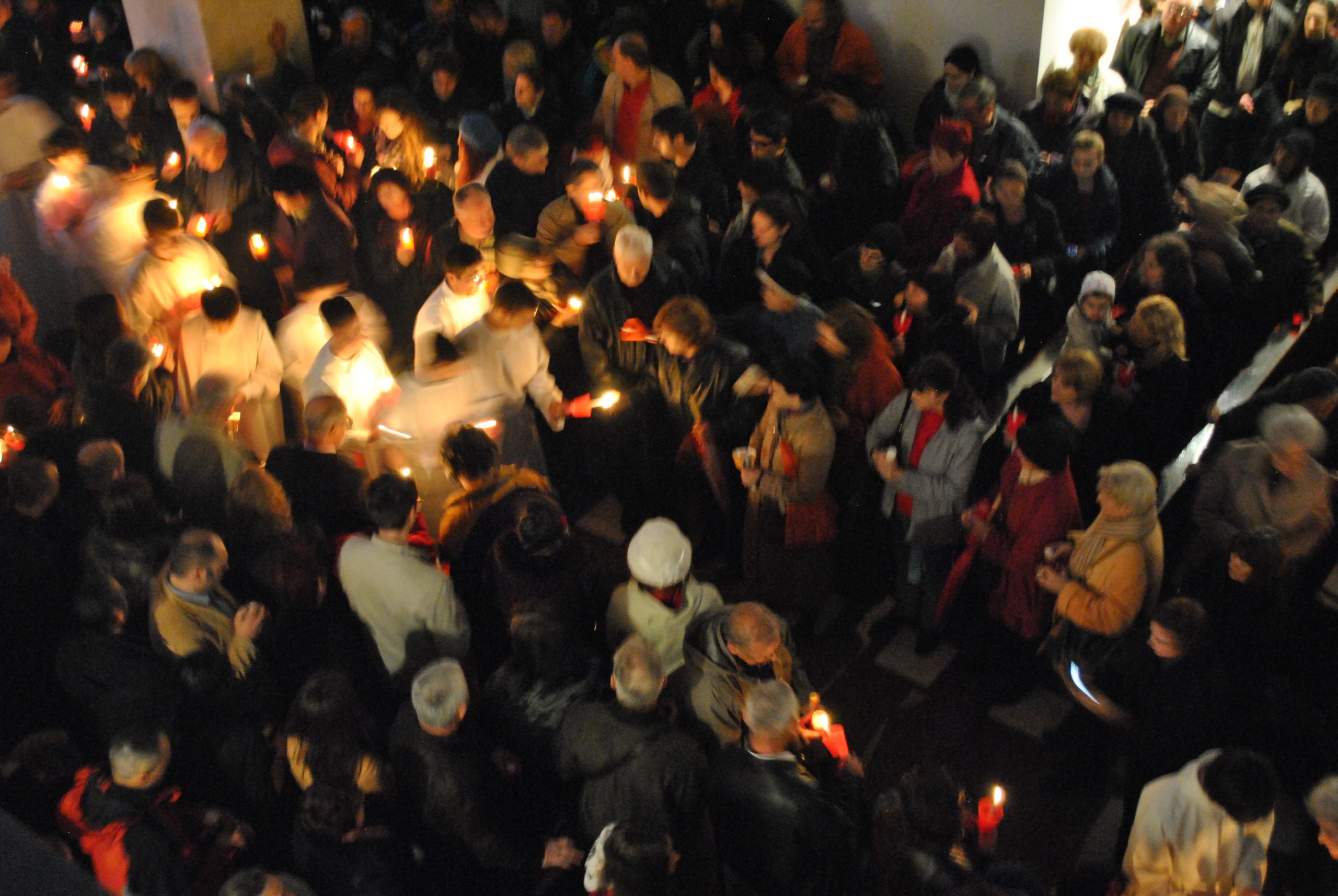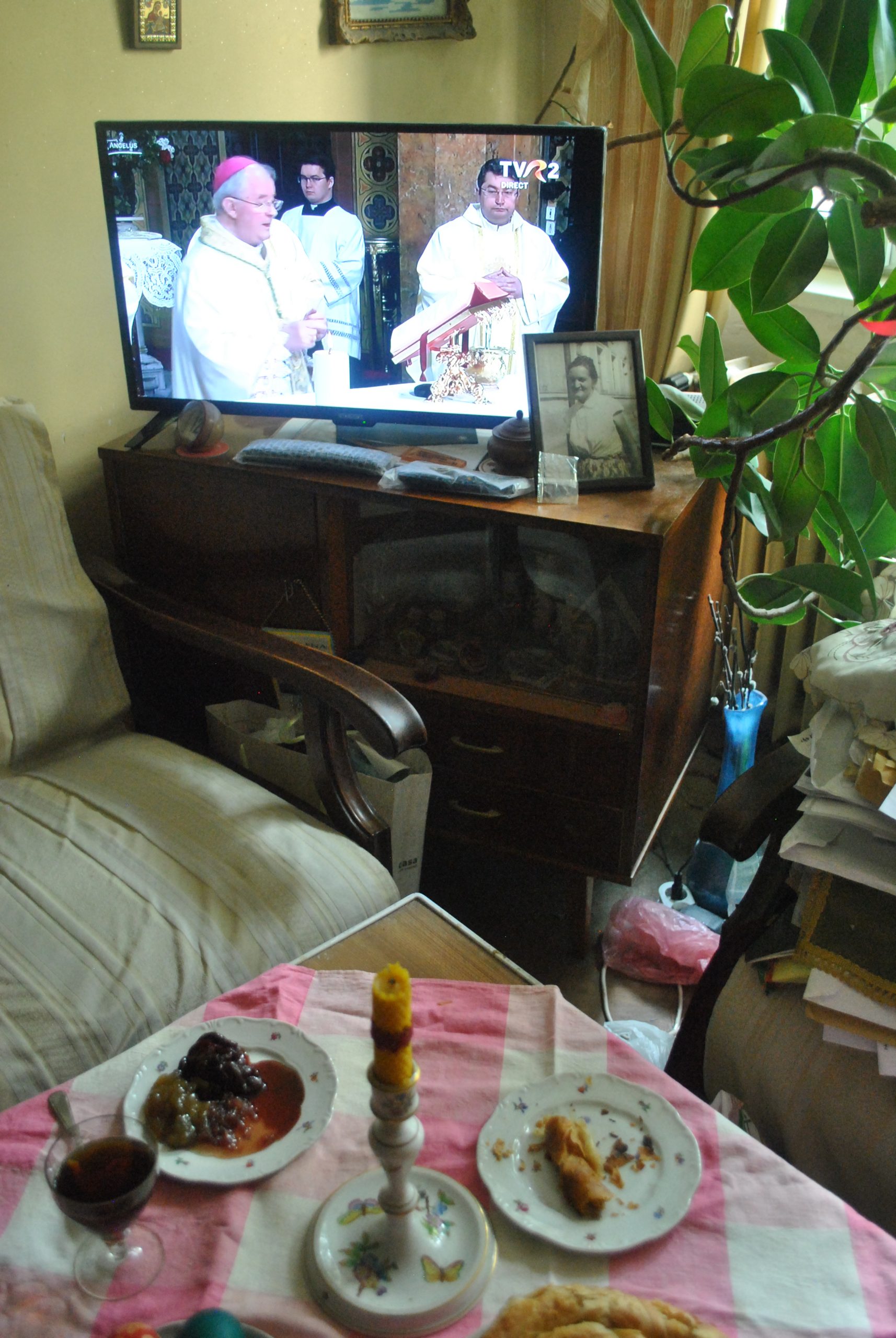Maria Bostenaru, Romania – WG4
Since the 22nd of March, a Sunday, masses are not celebrated with public in Romania anymore. I am Roman Catholic, so I’ve had Easter on the 12th of April. The majority of Romanian population is Orthodox, my father was too, and Easter was on the 19th of April. On orthodox Easter in the Holy Sepulcre Church in Jerusalem a light is accending, and this was brought to Romania despite lockdown. I was granted an STSM in Tel Aviv and was happy that this Easter will be different, I will go once to the Holy Land, and this even in the 40 days before Easter. I was in contact with a Romanian priest in the Holy Land as well. It came very different because of the lockdown, of other years even. During the lockdown, to have some relaxation, I read on the name of my ancestors (Merli-Merle) and found out that the name is carried by an archaeological site in Israel, founded by chevaliers bearing this name, the Merle from France. So I do hope that one day I come to Israel still. Yes, the ancestors emigrated from South-West Germany, on the frontier to France, I tracked down the city, but who can know something after more than 300 years…
Since the 22nd of March masses are celebrated with closed doors and transmitted in television. At catholic Easter there is no light from the Holy Land, instead, the pope called to accent a light and put it on window. We chose a candle of “bostinar” (in English: beekeeper) which is the origin of my own name, but, despite being a Romanian name, it was bought from a fair of the Hungarian minority. We also put it in a Hungarian porcelain candle support. This way we thought of more ancestors (my grandmother was from Hungary). In normal times, the light is from the Palm Sunday branches from last year. I recalled memories of Palm Sundays in different places in my life: the weavings from Nice, France, the olive branches from Rome. In Romania we use ament, if it is already in flower.
I’ve done more on researching on my family during lock down, like digitally working out records of memories of older relatives. It is a way to relax and not do only work, while being connected to the computer. Of course, I could read novels, but I keep that for the summer vacation when I go to fresh air in the mountains hopefully. The resort is close and in Romania, so I hope at least that will be possible in summer. I have bought a novel on the Bauhaus, which would have been my topic in Tel Aviv. But if the lockdown lasts longer, maybe I will read it from home as well. In plan it is a novel also I’ve bought on the Orthodox spirituality of Athos, written by a colleague architect (I try to read contemporary novels by colleagues, this is the third). These I’ve bought both before the lockdown. In plan is also listening to the plays on the novels of Ken Follet, about church in England. I read all three novels from the Kingsbridge series, the first (Pillars of the Earth) being a gift to my graduation, and looked to the films, so only the plays are missing to remember. And I hope to come once also to Salisbury, the church which served as a model, despite lockdown and Brexit, but I’ve been in the UK twice while Romania was not an EU country. These days we remember the Notre Dame fire a year ago. Ken Follett wrote a short piece on it, which I listened to. The connection France-England is thematised in his writings, and the Merle came from England originally, to come back to the earlier topic.

